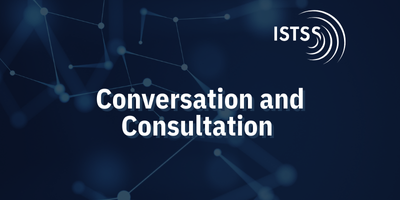Bringing Together Clinicians and Researchers From Around the World to Advocate for the Field of Traumatic Stress.
Healing Trauma Together
The International Society for Traumatic Stress Studies is dedicated to sharing information about the effects of trauma and the discovery and dissemination of knowledge about policy, program and service initiatives that seek to reduce traumatic stressors and their immediate and long-term consequences. ISTSS is an international interdisciplinary professional organization that promotes advancement and exchange of knowledge about traumatic stress.
Late-Breaking Poster Abstracts for the ISTSS 40th Annual Meeting
Deadline: Friday, July 26, 2024
All too often, research isn't completed when ISTSS abstract submissions close. ISTSS is excited to offer this opportunity to submit a late-breaking poster submission for the 40th Annual Meeting.
Only poster abstract submissions will be considered.
The ISTSS 40th Annual Meeting will focus on innovative strategies to apply basic science knowledge to the assessment and treatment of traumatic stress, as well as on the translation of scientific findings into actionable interventions for the global community. In pursuit of this goal, we seek submissions specific to the field of traumatic stress on topics related—but not limited—to:
- Application of biomedical science findings to inform assessments and interventions for traumatic stress symptoms/disorders.
- Research investigating the psychological, biological, social and behavioral mechanisms that underlie post-trauma mental health.
- Research taking a life course perspective to address to address the spectrum of translational science research.
- Evidence-based practices and innovative research in basic science, intervention development and implementation, and policy.
- Innovative transdiagnostic treatment approaches addressing the myriad consequences of trauma.
- Cutting-edge research methodologies and statistical frameworks for translational science research.
- Ethical implications and considerations associated with the application of translational science in traumatic stress studies.
- Ways to effectively communicate and disseminate research to different stakeholders.
- Ways to cultivate translational science and interdisciplinary exchange.
- Challenges and debates in the area of translational science.
- Translational science as applicable to the global community.
Registration is Now Open!
Join us in Boston on September 25-28, 2024 for the ISTSS 40th Annual Meeting. The ISTSS Annual Meeting provides a forum for the dissemination of theoretical work, scientific research, and evidence-based clinical approaches in traumatic stress studies.
Conversations and Consultations
Our Conversations and Consultation series is a members-only series that provides members with the opportunity to exchange valuable insight and advice with subject-matter experts, mentors, and/or colleagues in the trauma field. Each session is facilitated by one or more experts and presented to ISTSS members as a free membership benefit. Check out past sessions on industry careers, part-time private practice, and our most recent session on international collaboration.
Grow Your Professional Network by Volunteering with ISTSS
Volunteers play an integral role in ISTSS' day-to-day activities and form a broad professional network. Interested in adding an ISTSS volunteer position to your CV?
Biological perspectives: Neurocognitive impairments among individuals with PTSD: A brief review of current advances and insights – Sheila M. Thompson and Janne L. Punski-Hoogervorst
Posttraumatic stress disorder (PTSD) involves four main symptom clusters, namely (i) intrusion, (ii) avoidance, (iii) negative cognition and emotion, and (iv) hyperarousal. Although focus has traditionally been on emotional symptoms, there is an increasing interest in neurocognitive impairments that are often found among individuals with PTSD. It is important to recognize these impairments associated with PTSD, as neurocognitive impairments have direct implications for recovery, adequate daily life function, and the duration and severity of the disorder (Bisson Desrochers et al., 2021).
Clinician’s corner: An introduction to medical trauma – Sacha McBain, PhD
In recent years, there has been a growing awareness of the negative psychosocial impacts of various medical events, which has led to an increased attention on medical trauma. While the COVID-19 pandemic may have contributed to this, there has been research over the last few decades seeking to understand potentially traumatic medical events and their outcomes, including posttraumatic stress disorder (PTSD). Medical trauma includes potentially traumatic events related to life-altering or life-threatening medical events, such as pain, injury, serious illness, medical procedures or other frightening treatment experiences.
Clinician’s corner: STARS: An ecological blueprint for addressing racial stress in trauma-informed practice in schools – Farzana T. Saleem, PhD and Emma C. Keller
In a world where Black youth are shot for something as harmless and accidental as arriving at the wrong address to pick up their younger siblings, it becomes increasingly evident that we often fail to acknowledge the profound impact of racial stress and trauma. Ralph Yarl’s story is just one among far too many where activities like walking, playing, knocking on the wrong door or simply existing while being Black can have fatal consequences (Zaru & Negussie, 2023). While we have become more accustomed to discussing stories like Ralph's, or to seeing them dominate the U.S. news cycle for days on end, we have yet to fully come to terms with the fact that the reach of racial stress and trauma extends far beyond the confines of direct involvement in a traumatic event. Merely witnessing systemic racism and oppression weighs heavily on our youth, akin to an unspoken toll or what one young person, who participated in our teams’ intervention (i.e., TRANSFORM; Lau Johnson, Saleem, Pickens & Langley, 2021) designed to heal racial stress and trauma, refers to as an invisible burden: “I knew it was there, but I didn't know that it had a specific name to it. Like putting a name to a face, I guess that kind of helped too.” What this teen describes—the ability to articulate the experience they have always felt and known to be true—is what it looks like to provide youth with the necessary tools to address racial stress and trauma. It is about the transformative process of making the invisible visible.



